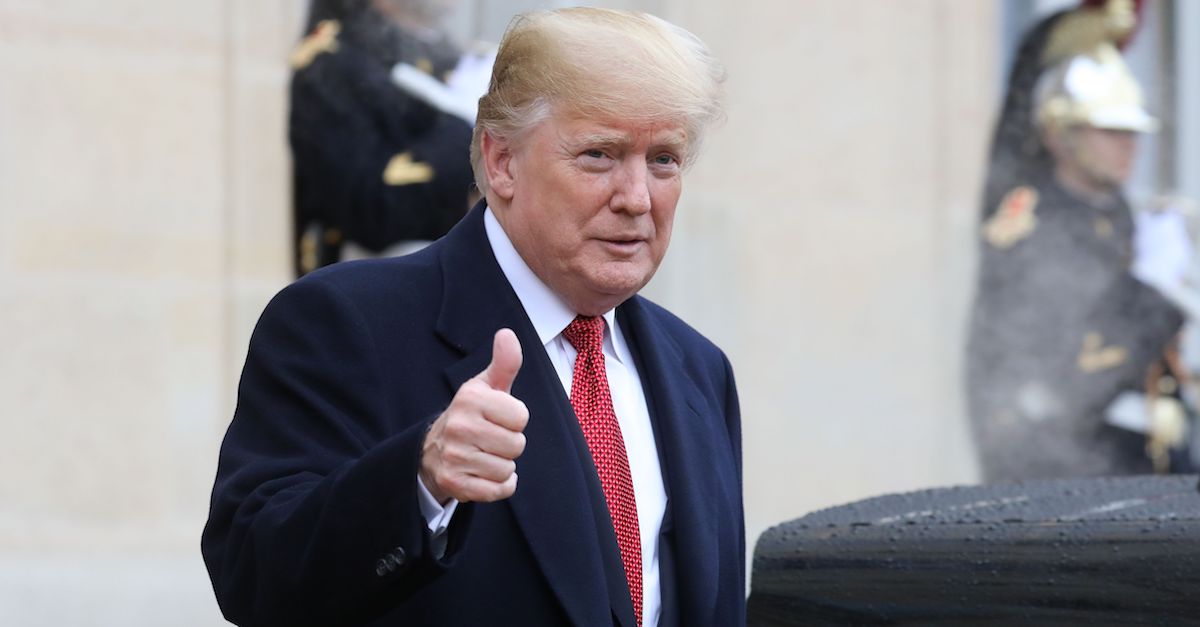
The Second Circuit ruled Tuesday that President Donald Trump cannot legally block users on his Twitter account; everything about the opinion – from the court’s systematic dismantling of Trump’s untenable argument on the private nature of his Twitter account, to the court’s blunt ruling against the president – seemed like a major win for free speech.
One legal scholar, however, had a markedly different take on the matter. In a piece titled, The Courts Still Don’t Understand Trump’s Twitter Feed, Harvard law professor and former clerk to U.S. Supreme Court Justice David Souter, Noah Feldman detailed how the U.S. Supreme Court needs to correct the Second Circuit’s decision – or risk permanent injury to the First Amendment.
Before we go further, this is a good time to point out that Professor Feldman is anything but a Trump apologist; I’ve written before about Feldman’s pretty broad, but extremely convincing take on “high crimes and misdemeanors,” in contemplation of a Trump impeachment. So when Feldman says an anti-Trump ruling is wrong, it’s worth a little attention.
In Wednesday’s op-ed, Feldman says that the Second Circuit’s decision, “will be hailed by some as a win for free expression,” but that, “it’s actually based on a misconception about our social media accounts — one the U.S. Supreme Court is going to have to fix.” The issue, according to Feldman, is with the court’s determination that Trump’s Twitter account was “public” as opposed to “private.” Certainly, as I discussed yesterday (and as the Second Circuit pointed out at length), Trump routinely uses Twitter to conduct official presidential business. Therefore, as the court clearly found, any argument that the president’s account is his alone to censor is incorrect. That all makes good sense.
What wasn’t raised in court, however, was Twitter’s role in all this. As Professor Feldman pointed out, Twitter is a private business. Twitter provides the platform for speech, Twitter censors content as it deems appropriate, and Twitter sets out rules for its users – presidential or otherwise. Looking at things from Twitter’s point of view, it’s pretty clear that all of our feeds are private in nature (at least with respect to the First Amendment). After all, if Twitter throws a user off its platform, it has no obligation to comply with constitutional limitations. As Feldman put it, “Trump’s Twitter feed is nothing whatsoever like the public forums to which the courts have applied the First Amendment in the past.”
There’s more too. Feldman not only points out the logical flaw in the Second Circuit’s decision, but warns of a far more insidious problem to come. If the government subordinates itself to communications rules of private platforms by turning private communication into public communication, it will always have that option available to severely limit free expression. In other words, the government could simply put all its “public” forums onto social media platforms, thereby inherently restricting communications to conform with the platform’s terms of service. In that way, using social media could become the ultimate workaround for the First Amendment.
If I were a conspiracy theorist, I might surmise that Professor Feldman’s imagined constitutional dystopia is the very reason Trump’s people made such flimsy arguments in federal court; this way, they could appear to suffer a loss, but actually be laying the groundwork for curtailed speech for years to come. But I’m not a conspiracy theorist. On the issue of, “why didn’t Trump’s lawyers argue that Twitter’s role in its own platform requires a finding that it is private?” my reasoning is pretty simple: they just didn’t think of it.
[Image via LUDOVIC MARIN/AFP/Getty Images]
This is an opinion piece. The views expressed in this article are those of just the author.